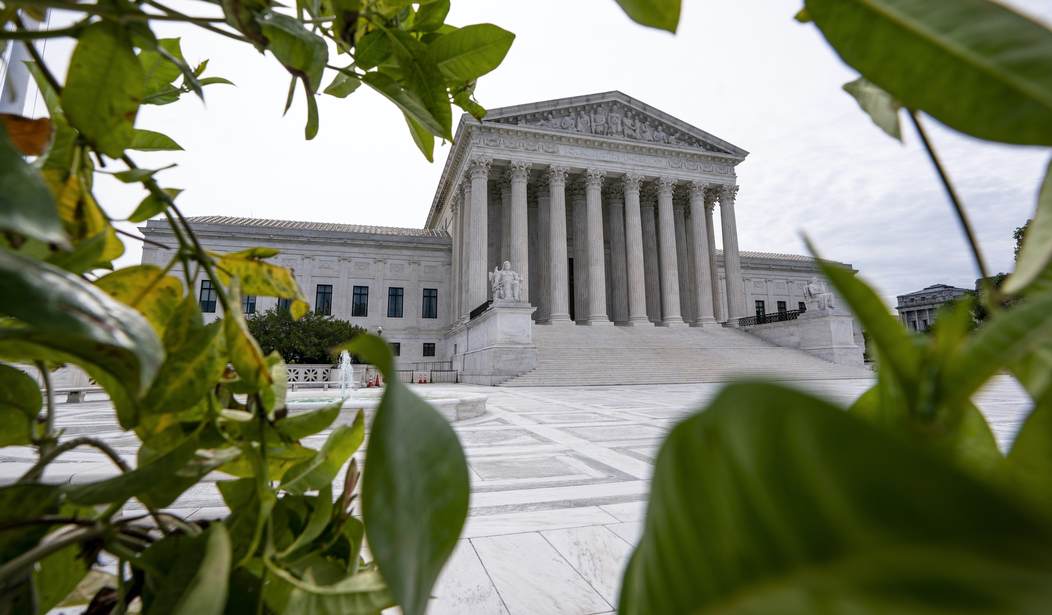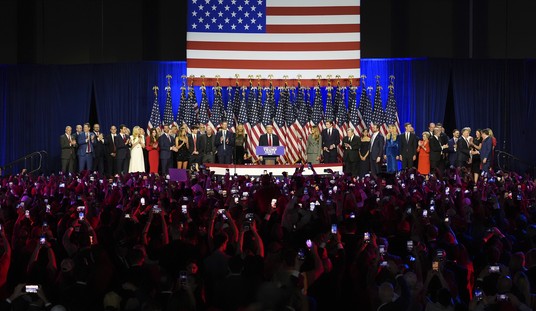On a summer morning somewhere in the heartland, a grandfather in Iowa kneels next to his grandson’s bike, adjusting the chain.
In a bustling Houston hospital, a nurse wraps a diabetic patient’s foot with bandages paid for by an insurance mandate.
In Tennessee, a teenager sits on a clinic table, waiting for hormone treatment, now caught in legal limbo.
All across America, lives unfold quietly, but they're about to be shaken by nine rulings that the Supreme Court will drop like thunderclaps in June.
Each case peels back a layer of our nation’s identity, faith, family, freedom, and federal power.
Together, they’ll determine how we live, what we teach, and how far the state can reach into our homes, hospitals, schools, and screens.
1. United States v. Skrmetti: Gender, Medicine, and State Power
Tennessee banned gender-transition treatments for minors. The Sixth Circuit upheld it. Now, the Supreme Court must decide whether this law violates the Equal Protection Clause.
Proponents call the law common sense, a necessary protection for children. Opponents say it’s state-sponsored discrimination.
If the Supreme Court sides with Tennessee, other red states will probably double down.
If it rules the ban unconstitutional, the Court effectively federalizes gender-affirming care policy nationwide.
This isn't just about Tennessee. It's about whether the states still have authority over medicine and morality within their own borders.
2. Murthy v. Missouri: Free Speech vs. the Algorithm
Can the federal government pressure social media platforms to suppress certain content? That’s what this case asks.
At the heart of the matter is whether officials crossed the line between flagging misinformation and coercing private companies to censor dissent, especially during the COVID-19 pandemic. The ruling will shape the future of online speech in the United States.
This one’s big. If the government can whisper or shout into the ear of Big Tech, who really controls the conversation?
3. Trump v. United States: Presidential Immunity on Trial
This isn't just a court case; it’s a civics stress test.
At the center of Trump v. United States lies a profound question: Can a former president be criminally prosecuted for actions taken while in office, especially if those actions were tied to official duties?
Donald Trump’s legal team argues the answer is no. Not unless that president was first impeached by the House and convicted by the Senate. Their claim draws from a specific reading of the Constitution’s impeachment clause and the fear of a banana republic cycle where each outgoing administration faces retribution from its successors.
Critics argue that this position is absurd, as it places a president above the law, immune from accountability, even if crimes were committed at the Resolute Desk.
But here’s the deeper issue: what actually counts as an “official act”?
Is speaking to state legislators about alternate electors' official business?
Is tweeting about the vice president?
Is asking the Justice Department to investigate voter fraud part of the job or part of a coup?
The Court’s ruling will force a definition that’s eluded us for 235 years.
If the Court sides with Trump, it will carve out an executive immunity doctrine not seen since Nixon’s “when the president does it, that means it is not illegal” philosophy, only broader.
Future presidents would be emboldened, not just to test their powers but to assume protection from after-the-fact review.
But if the Court rejects Trump’s claim outright, it could greenlight politically motivated prosecutions after every administration, triggering a domino effect of partisan lawfare.
Think of Biden being indicted in 2029 for ordering the Afghanistan withdrawal. Think of Obama facing a criminal inquiry over drone strikes.
If everything’s fair game, then nothing is sacred.
This dilemma echoes back to the 1803 case of Marbury v. Madison, which established the Supreme Court’s authority to interpret the Constitution. But Trump v. United States will test whether that authority can define not just law but the boundaries of power itself.
It’s a uniquely American problem. Our system doesn’t work like a monarchy, where the king is above the law. Nor is it purely parliamentary, where leaders are just other members of the legislative body.
The U.S. presidency is singular, both citizen and head of state. That duality makes the stakes of this case so high.
Justice Alito raised a crucial question during oral arguments: “If a president is in constant fear of prosecution after leaving office, will that affect how they govern?”
It’s not an abstract concern.
Every decision, from troop deployments to pandemic mandates, carries risk when hindsight is used as a weapon.
On the other side, Justice Jackson posed the inverse: “Doesn’t a blanket immunity allow a president to break any law they want?” If this case had come under Nixon or Johnson or FDR, the public might’ve tolerated some ambiguity.
However, in the post-2020 landscape, where trust is fractured, and institutions are wobbling, clarity is essential.
This case isn't just about Donald Trump. It's about every president in the future.
About whether our Constitution contains a self-destruct button hidden under the word "executive."
About whether law restrains power or whether power reinterprets law after the fact.
And it will also shape the next election. If Trump wins a partial victory, say the Court rules some acts are immune but others aren’t, it will delay proceedings well past November.
A full win may end federal prosecution entirely.
A loss could speed up criminal trials in multiple jurisdictions, potentially dragging a major-party nominee into courtrooms instead of debates.
Whatever the outcome, Trump v. United States will be cited for decades, not just in courtrooms, but in classrooms.
Because this is where America decides what kind of republic we are and whether any person, no matter how powerful, is truly accountable under the law.
Or, as Andrew Jackson might have said, the Constitution is still being interpreted, but this time, we’re all watching.
4. FEC v. Cruz for Senate: Who Gets to Loan a Campaign Money and Gets It Back?
Ted Cruz lent his 2018 campaign $260,000 and then sued when federal rules limited how much he could be repaid after the election.
The issue sounds trivial. It’s anything but. If the Court strikes the rule, it opens the door to wealthy candidates bankrolling their own campaigns and then getting reimbursed by donors after the fact.
That’s a pretty slick money loop. The ruling could significantly alter campaign finance strategies, particularly in close Senate and House races.
5. Religious Charter Schools: St. Isidore of Seville Catholic Virtual School v. Drummond
Oklahoma approved a religious charter school using taxpayer money. Critics say it blatantly violates the Establishment Clause.
Supporters argue that religious schools should have equal access to public funds if they meet the same educational standards.
If the Supreme Court backs the school, we could see a rise in faith-based charter schools across America. For families disillusioned with public education’s social agenda, this might be the lifeline they’ve prayed for.
Either way, this case puts the wall between church and state under the microscope and possibly the sledgehammer.
6. NetChoice v. Paxton: Censorship or Corporate Control?
Texas passed a law that prevents large social media companies from banning users based on political views. Big Tech sued, claiming it violates their First Amendment right to control their platforms.
So which takes precedence, the platforms’ rights to moderate or users’ rights to speak?
This case could kneecap Silicon Valley’s power to suppress content, especially conservative voices. If the Court rules against Texas, expect more cries of bias and shadow banning. If it sides with Texas, expect a floodgate of political chaos online.
7. Grants Pass v. Johnson: Homelessness and the Rule of Law
Grants Pass, Oregon, banned public camping even for homeless individuals. Lower courts blocked enforcement, calling it cruel and unusual punishment.
This case forces the Court to decide: Is enforcing laws against sleeping in public parks an injustice or a city’s right to maintain order?
The ruling could affect every town wrestling with homelessness, especially those crippled by progressive policies that defy enforcement and sanity.
8. Moyle v. United States: Abortion, States' Rights, and Emergency Rooms
After Idaho banned most abortions, the Biden administration sued, claiming federal emergency care law overrides state law when a pregnant woman’s life is at risk.
This one slices into federalism like a scalpel. Can the federal government override a state’s abortion law under EMTALA?
For pro-life advocates, a ruling against Idaho would gut their legislative gains. For others, it’s about preserving maternal medical rights in crisis. Either way, it’s Roe’s shadow returning through the ER door.
9. Corner Post v. Board of Governors: The Battle Over Bureaucracy
At first glance, this sounds dry. But don’t be fooled. The question: When does the clock tick on lawsuits against federal regulations?
Current rules limit the window to sue after a regulation is published, even if the business impacted didn’t exist. A ruling for Corner Post would extend that window and make it easier to challenge rules.
It’s a technical case but with enormous implications for reining in the regulatory state. Think of it as the sleeper case that could put the alphabet agencies back in their box.
Final Thought: June's Legal Earthquake
Taken together, these cases ask who we are and who governs us. Will tech companies still be our moral gatekeepers?
Will the federal government grow larger, louder, and more entangled in our private lives?
Or will this Court, crafted by Trump, pressured by history, and standing in the eye of a national storm, reset the balance?
These aren't just rulings.
They're a reckoning.
And when the gavel falls, your world may look very different by July.
The left said the walls don’t work. Now, they’re hiding behind private security and gates.
We expose hypocrisy. Join PJ Media VIP and use promo code FIGHT to save 60%.










Join the conversation as a VIP Member